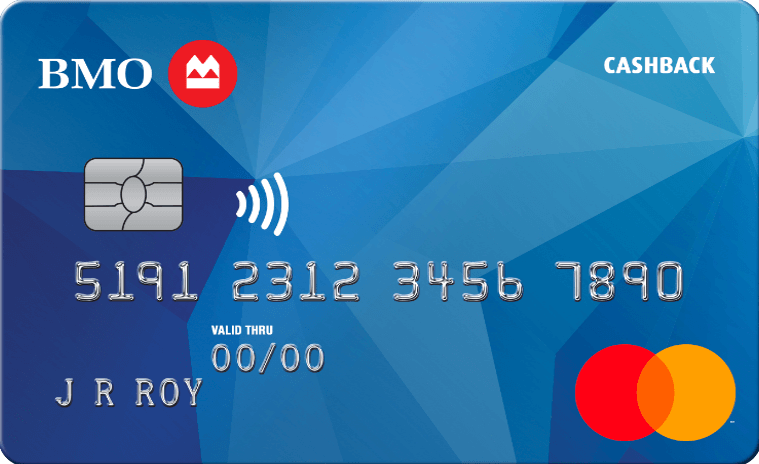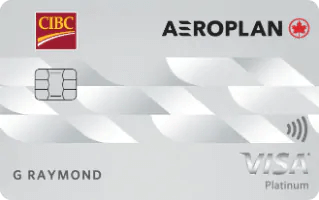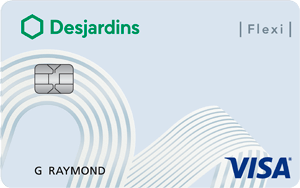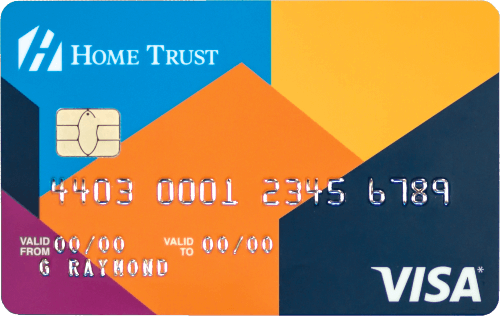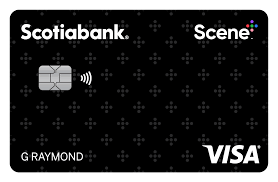The best student credit cards in Canada in 2025

When you are in a new restaurant, do you have to check the menu before ordering? Or did you eat delicious food and say it well, know that this will be great? The answers can help you decide how to choose a new credit card. Some people want to be able to compare their options side by side, while others just need to make some suggestions (from people who know what they are talking about). This page is available.
The best student credit cards in Canada: Our Editor’s Choice
Canada has a large number of credit cards. However, these options are limited for students who do not necessarily have credit scores or annual income (which are common eligibility criteria). This is not a bad thing – in fact, it will make your life easier! Once you know the credit card you want most, the choice becomes very clear.
| The best credit card | if…… |
|---|---|
| Best Cash Back Credit Cards for Students BMO Cash Back to Mastercard Annual Fee: $0 |
You spend most of your budget on groceries and prefer cash backs over travel rewards. |
| The best travel credit card for students CIBC Aeroplan Visa Card Annual Fee: $0 |
You are saving travel and want to earn flight points and get there with less speed. |
| Best low-information credit card Flexi Visa Annual Fee: $0 |
You will balance from time to time and want to minimize interest expenses. |
| Best guaranteed credit card Family trust visa Annual Fee: $0 |
You are building or rebuilding your credit and need to guarantee the approved card. |
| Best store credit card for students PC Mastercard Annual Fee: $0 |
You often shop at Loblaw stores and want to earn points on groceries and essentials. |
| Best Student Credit Cards for Entertainment Scotiabank scene + student visa card Annual Fee: $0 |
You are a movie lover who wants to get free tickets and discounts in snacks or apply these points to travel, groceries, dining and more. |
Should you get your own credit card?
Having your own credit card and becoming an authorized user (also known as a supplementary cardholder) with a parent or partner account are two different things. As an authorized user, you can access the credit of the primary cardholder through the credit card on the credit card to make a purchase. However, these transactions do not help you build a credit history or credit score. To build a good credit score, you need your own credit card account and pay off your balance regularly and on time.
The best cash Student’s Credit Card: BMO Cash Back Mastercard
BMO Cash Back Mastercard is the first choice for students seeking simple cash income. The card has no annual charges combined with an impressive 3% cash repayment rate in grocery purchases, providing students with the opportunity to earn cash rewards in high categories.
feature
BMO Cash Back to Mastercard
Annual Fee: $ 0
Welcome quote: Earn up to 5% cash back in your first three months. Applicable conditions.
Card details
| interest rate | 21.99% of purchases, 23.99% of cash upgrades, 23.99% of balance transfers |
| Need income | not specified |
| Credit Score | not specified |
Best Travel Credit Card for Students: CIBC Aeroplan Visa Card Students
The CIBC Aeroplan visa card is tailored to the needs of students, especially those who can take advantage of travel rewards. This student-friendly card has no annual fee and it offers free SPC+ membership that allows you to enjoy up to 30% savings from over 450 brands.
CIBC Aeroplan Visa Card
Annual Fee: $ 0
Welcome quote: Earn 10,000 Aeroplan points on your first purchase ($200)
Card details
| interest rate | 20.99% of purchases, cash upgrades to 22.99% (21.99% in Quebec) |
| Need income | not specified |
| Credit Score | not specified |
| Point value | . |
Best Low Interest Credit Card for Students: Desjardins Flexi Visa
While you won’t get rewards with this card, Desjardins Credit Union’s Flexi Visa is a low-interest, no-fee credit card for students looking to minimize credit card debt. It also has benefits such as limited travel insurance, car rental discounts, monthly installment plans, and mobile device insurance.
Desjardins Flexi Visa
Annual Fee: $ 0
award: No rewards are provided.
Welcome quote: None at the moment.
Card details
| interest rate | 10.90% of purchases, 12.90% cash advance |
| Need income | not specified |
| Credit Score | not specified |
The best sStudent’s electronic credit card: Family trust security visa
Home Trust Secured Visa is an effective tool for Canadians to build or rebuild their credit history. You set your own spending limit, and the price ranges from $500 to $10,000. If you occasionally have difficulty repaying your balance, you can take advantage of the choice between two interest rates: 19.99%, no annual fee or 14.90%, with an annual fee of $59.
feature
Family trust visa
Annual Fee: $ 0
award: No rewards are provided.
Welcome quote: None at the moment.
Card details
| interest rate | 19.99% of purchases, 19.99% cash advance payment |
| Need income | not specified |
| Credit Score | 300 or higher |
Best store credit card for students: PC MasterCard
Pharmacies and grocery stores are the places where many students tend to spend the most. For those who often shop in the store, PC Mastercard becomes a powerful choice. Depending on the store’s earning rate is between 10 and 30 points per dollar, you can quickly accumulate rewards.
Card details
| interest rate | 21.99% of purchase, cash upgrade to 22.97% and balance transfer % |
| Need income | not specified |
| Credit Score | 560 or higher |
| Point value | 1 PC Best Point Value $0.001 (redeem 10,000 Points, $10) |
Best Student Credit Cards for Entertainment: Scotiarank scene + visa
If you go to the cinema to get rid of dormitory drama or take a break, consider this card. Your spending in the cinema will turn into some good privileges.
feature
Scotiabank scene + visa card
Annual Fee: $ 0
Welcome quote: Up to 5,000 bonus scenarios + points can be earned in the first three months. The offer ends on October 31, 2025.
Card details
| interest rate | 20.99% of purchases, 22.99% of cash upgrades, 22.99% of balance transfers |
| Need income | $12,000 per year |
| Credit Score | 660 or higher |
| Point value | 1 Scene + Point = 0.01 $0.01 Redemption on Cineplex and Scene Partners’ Travel, Store Purchase as well as Food and Drinks |
How we determine the best student credit card
Our editors apply their credit card expertise and Canadian financial goals to selection criteria that meet the expected cardholder needs. For students, we look for cards without annual fees, as well as low income and credit scoring requirements – because building a credit history is a common goal for those who use these cards. Apart from that, we consider ROI (for reward cards), purchasing APR (for low interest cards), and other factors based on the category. The increase in links to members’ partners has nothing to do with the results. Read more about our selection process and how Moneysense makes money.
Compare all credit cards
Why do you believe us
Moneysense is an award-winning magazine that has helped Canadians with their driving funding business since 1999. Our well-trained team of journalists works closely with Canada’s leading personal finance experts. To help you find the best financial products, we compare products from major institutions including banks, credit unions and issuers. Learn more about our advertising and trusted partners.
FAQ
Can high school students apply for credit cards?
Credit cards have age limits and are often income requirements that high school students may not be able to meet. However, this does not completely make all credit cards completely out of reach. If high school students are of the majority age (18 or 19 years old, depending on their province or territory), there are some options.
Credit card applicants in high schools should look for cards that do not require a credit history and do not have low income requirements or have no income. They could consider starting with a secured card where they can use deposits they can spend, as these help build a credit history. A reliable option is a secured credit card.
What do high school students need to apply for a credit card?
Typically, applicants will need a government ID, social insurance number, mailing address, employment status and income information to apply for a credit card.
I was rejected by my student credit card – what should I do?
If you are denied access to a card, it may be related to your credit history or income. Consider a secured or credit card for people with poor credit, as their requirements will be more modest. While you won’t receive allowances and benefits from other cards, responsible use can help you build a credit score so you can access better products in the future.
Student’s credit card tips
You know you need to be responsible for how to use your credit card, but what exactly does that mean? Keep reading for tips on using a credit card to improve your credit score and avoid any problems.
1. Check your payment date
You may know that credit card bills arrive every month, but that doesn’t mean that your payment due date is the first day. The date when the billing cycle begins depends on when you get your account approval and may be any day of the month. Make a note of the due date and make sure you pay on time. Also consider adding these dates to your school calendar.
2. Pay off the balance in full
If you are responsible for your credit card, you won’t use it to spend money. Don’t have debts. The best thing to do is to pay your bills in full every month on time. Not only will this improve your credit score, it will also help you avoid expensive interest charges.
3. Pay attention to the minimum balance
If you overspent, you still need to pay off some balance. Your bill will show the total balance and minimum payment. Regardless, you have to pay at least the minimum payment on time and every month. Missing payments is one of the worst things you do for your credit score. Paying a minimum means you are accumulating interest on your unpaid balance. On average, about 20% or so, which may add up quickly.
4. Don’t overspent
If not clear: don’t overspending! Credit is borrowing money, and credit cards are not debit cards. All fees you charge must be paid off. If you can’t or can’t, in addition to destroying your credit rating, you will find yourself charging interest fees.
5. Don’t maximize your credit card
Your credit card will have a line of credit; that’s the amount you can technically borrow. However, spending all the way to your limits (i.e., maximizing your card) is reckless. Paying off your balance will be even more difficult. At least initially, selectively use your card for smaller purchases and consider using a debit for almost everything else.
This article is introduced by advertising partners.
This is an editor-driven article or content package and is provided with financial support from advertisers. Advertisers have no impact on the creation of content.

